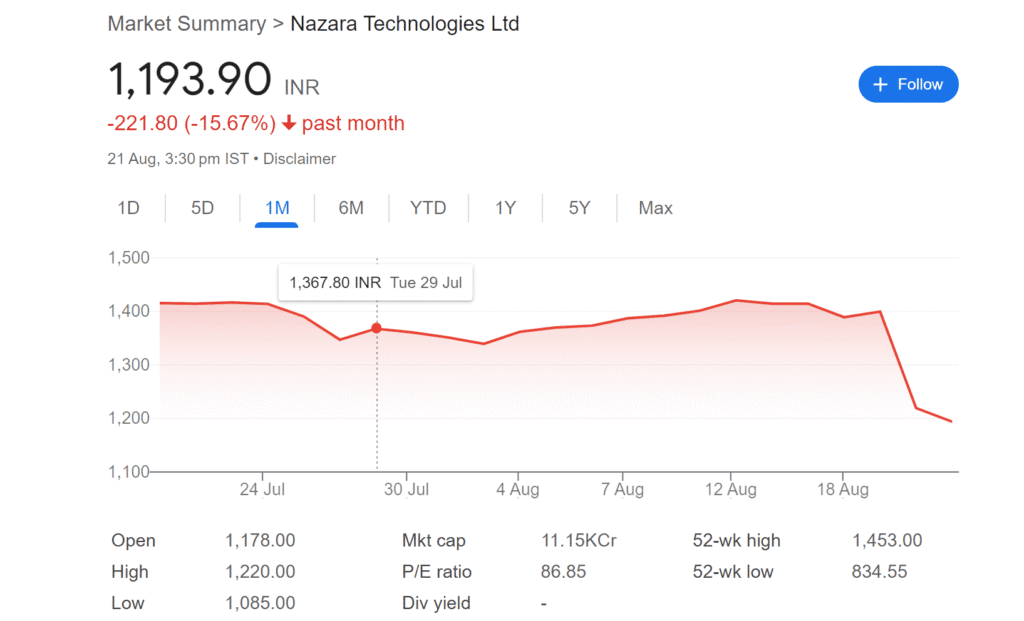Fantasy Sports Ban in India 2025: What It Means for Dream11, Nazara, BCCI & the Future
The Indian fantasy sports industry, once considered a shining example of digital innovation, is facing its biggest challenge yet. With the Promotion and Regulation of Online Gaming Bill, 2025, the Government of India has officially prohibited platforms like Dream11, My11Circle, MPL Fantasy, and others. Overnight, an ecosystem built over nearly a decade finds itself struggling for survival.
This ban has sent shockwaves not only among players but also across BCCI, broadcasters, domestic cricket leagues, investors, and fantasy creators who thrived on this growing industry. Let us break down the implications and what the future might look like.
Why Did the Ban Happen?
The Online Gaming Bill 2025 groups fantasy sports under betting and gambling. Despite multiple Supreme Court and High Court judgments affirming that fantasy sports are games of skill, the government has chosen a stricter route.
The reason cited is the social harm of online gaming, rising addiction, and the lack of a uniform regulatory framework. Unfortunately, this decision ignores the difference between fantasy sports and gambling – something that had been constitutionally protected under Article 19(1)(g) for years.
The Scale of the Fantasy Sports Industry
- The Indian fantasy sports market was valued at USD 1.82 billion in 2025, projected to reach USD 5.05 billion by 2030 (CAGR 22.6%).
- Over 13 crore Indians engaged with fantasy platforms.
- Thousands of jobs and startups thrived because of this ecosystem.
- Sponsorship deals with BCCI, IPL, Pro Kabaddi, and domestic cricket tournaments made fantasy apps a lifeline for Indian sports.
With one law, this entire chain has been disrupted.
Impact on Dream11 & Nazara Technologies
Dream11, the leader of fantasy sports in India, now faces an existential crisis. It was not just an app but also the title sponsor of IPL for multiple seasons, contributing massive revenues to Indian cricket.
On the other hand, Nazara Technologies, India’s only listed gaming company, had major stakes in fantasy and esports. For them, this ban affects not only user engagement but also shareholder confidence. Nazara may now pivot towards esports, real-money gaming outside India, or international fantasy platforms.

The BCCI & Domestic Cricket Leagues
The Board of Control for Cricket in India (BCCI) and other cricket bodies will feel the pinch. Fantasy sports companies invested heavily in:
- Sponsorships (Dream11 IPL deal was worth hundreds of crores)
- Advertising revenues for broadcasters
- Grassroots cricket promotions
Domestic leagues like Ranji Trophy, Syed Mushtaq Ali, and state T20 leagues also received financial backing from fantasy apps. Without this, a significant funding gap emerges in Indian cricket.
Broadcasting & Media Industry
Fantasy apps played a big role in boosting sports broadcasting revenues. Fans who made teams on Dream11 were far more likely to watch live matches, increasing TRPs for channels like Star Sports and OTT platforms like JioCinema.
Broadcasters will now need new strategies to engage fans. Advertising losses could also force networks to rethink how they sell cricket rights.
Rise of Fantasy Creators & Their Future
A new generation of fantasy creators and influencers built careers by giving team predictions, analysis, and tips on YouTube, Instagram, and Telegram.
With the ban, these creators face an identity crisis. Many may shift towards:
- Sports analytics & cricket commentary
- Esports content creation
- International fantasy leagues (like US, UK, UAE)
This transition won’t be easy, but it may open new opportunities.
What’s Next for Fantasy Apps in India?
- Legal Challenges
Dream11, FIFS (Federation of Indian Fantasy Sports), and gaming companies may challenge the Bill in courts, arguing fantasy sports are skill-based. - Shift to Global Operations
Companies could move operations to countries with clear regulations like USA, UK, or UAE while serving Indian users indirectly. - Pivot to Esports & Free-to-Play Models
With real-money fantasy banned, apps may adopt ad-based free fantasy models or push towards esports tournaments. - Industry Alliances with BCCI & Broadcasters
Expect negotiations between fantasy companies, broadcasters, and BCCI for a possible regulatory framework instead of a full ban. - Nazara’s Strategic Moves
Being a listed company, Nazara may take the lead in shaping a regulated esports + fantasy ecosystem in India, balancing compliance with innovation.
The Bigger Question: Skill vs. Gambling
This debate is not new. Indian courts have repeatedly upheld that fantasy sports are skill-based, unlike gambling. However, the new law ignores this distinction.
If India wishes to position itself as a global digital economy leader, the government must find middle ground—regulate, tax, and monitor instead of outright banning.
FAQs
1. Why did the Government ban fantasy sports in India in 2025?
Because the new Online Gaming Bill categorized fantasy sports along with gambling, despite court rulings calling it skill-based.
2. Is Dream11 permanently banned?
Yes for now, but legal appeals are expected.
3. What happens to user money?
Apps are likely to enable withdrawals and refunds, but clarity from RBI is awaited.
4. How will this affect Indian cricket?
BCCI, domestic leagues, and broadcasters will lose sponsorship and ad revenues worth thousands of crores.
5. Can fantasy sports return?
Yes, if courts intervene or if the government introduces a licensing framework in the future.
Table of Contents
Toggle



